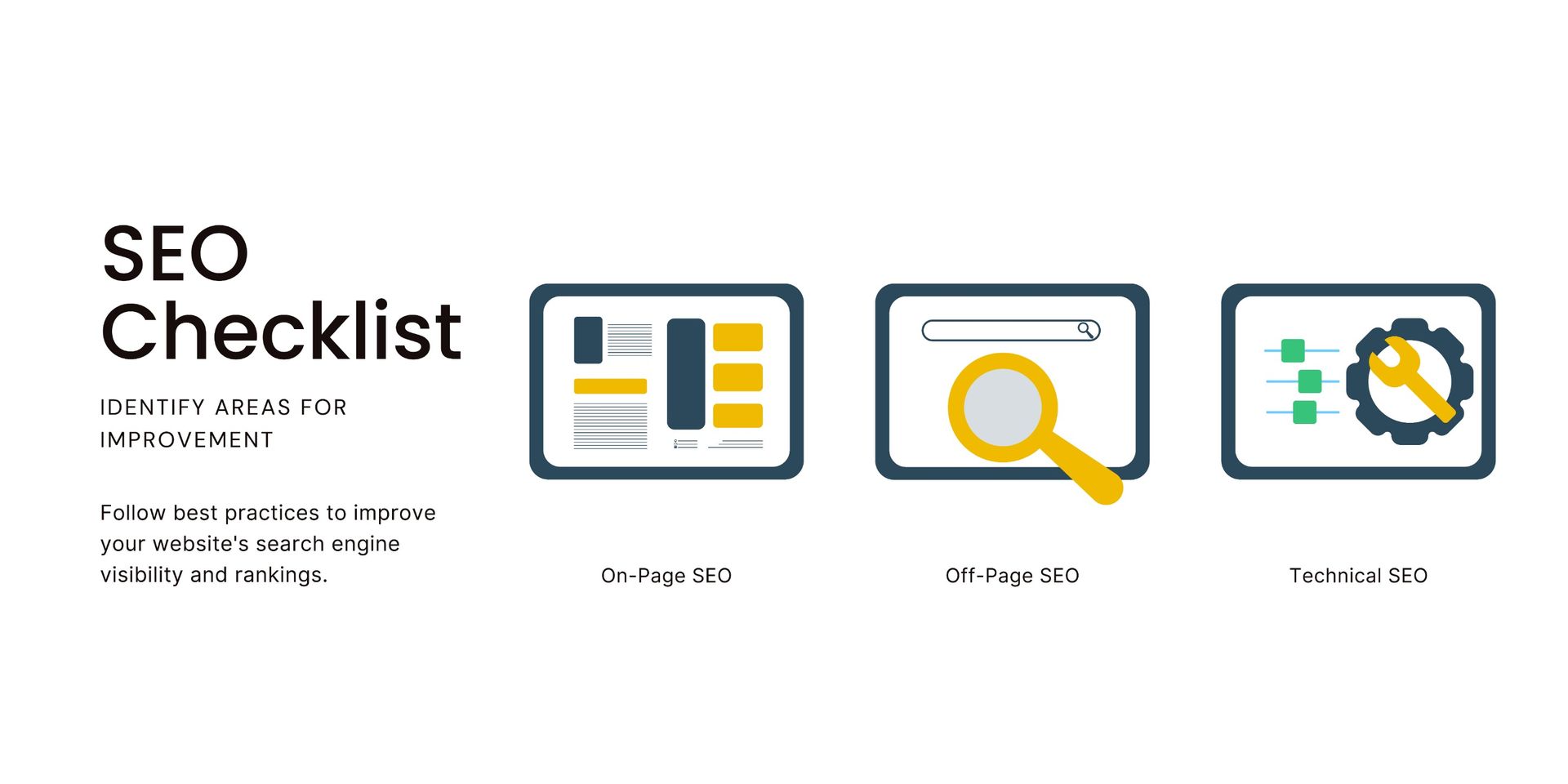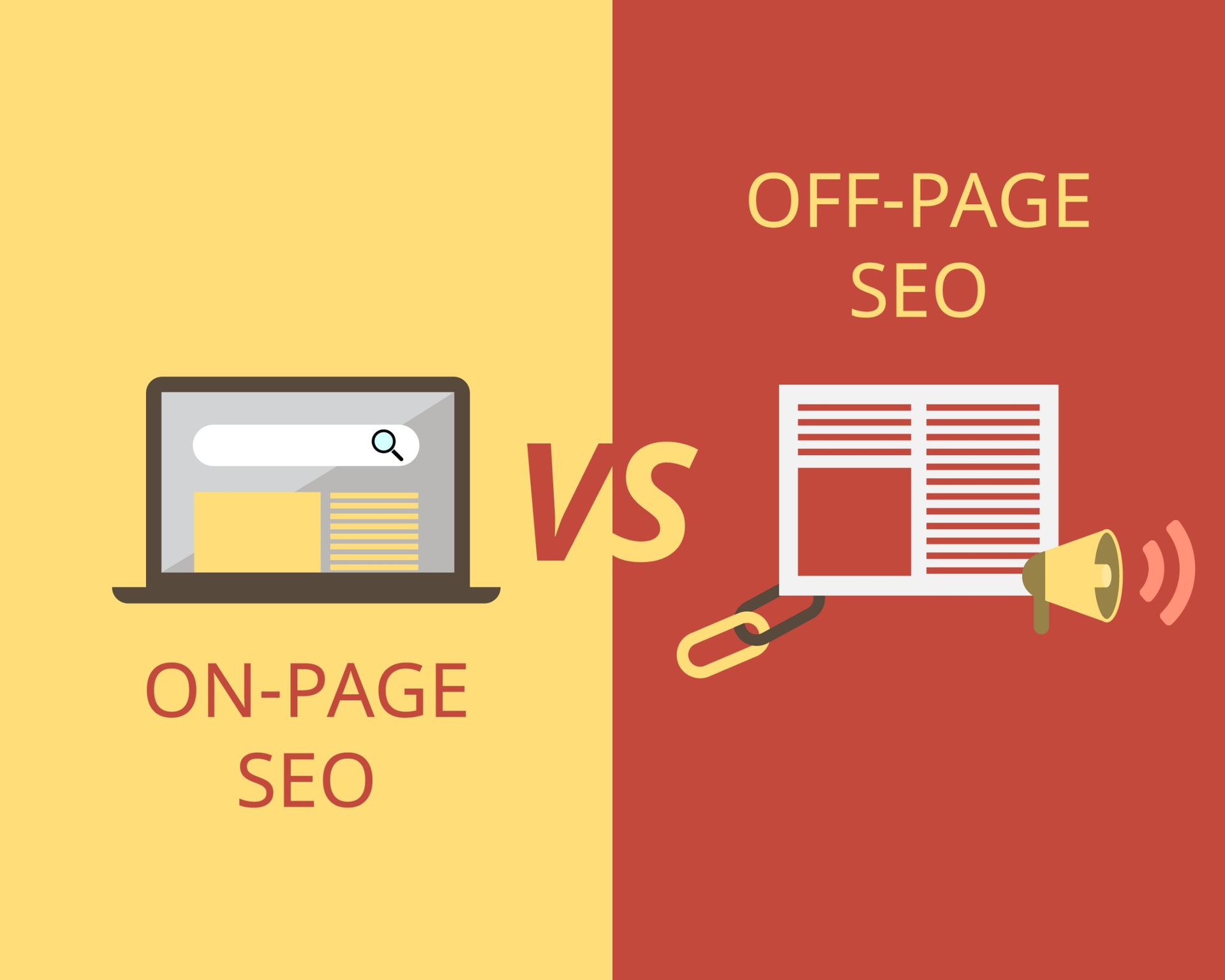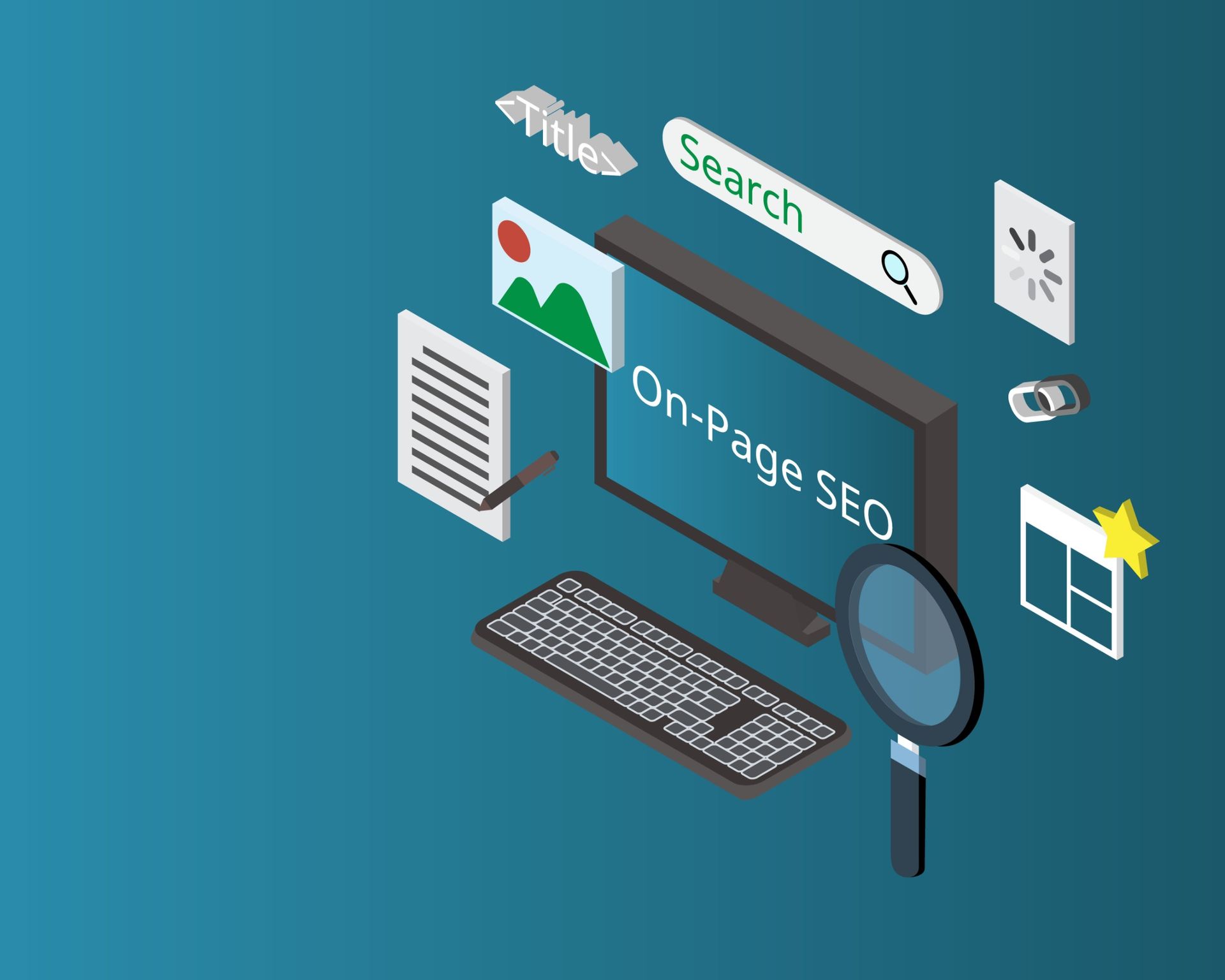Optimizing On-Site SEO for Small Business Owners
Optimizing On-Site SEO for Small Business Owners
In the fast-paced digital marketplace, visibility is key, and mastering on-site SEO is essential for any small business owner hoping to gain an edge. While the terminology and strategies may initially seem daunting, on-site SEO is a navigable ocean with the right compass.
This post will act as that compass, guiding you through the powerful world of on-site SEO with a focus on practical, step-by-step advice tailored for small business owners.
Understanding On-Site SEO
Before optimizing your web pages, it's crucial to understand what on-site SEO entails and why it's crucial. On-site SEO involves tweaking your website's elements, from technical aspects to the content itself, to appeal to search engine algorithms.
The ultimate goal is to make your pages more 'search engine friendly' and, consequently, more likely to be found by your potential customers.
Key Components of On-Site SEO
The fundamental components of on-site SEO include:
Meta Tags: These are snippets that provide metadata about your page content. They consist of a meta title, which is the clickable blue link in a search engine results page (SERP), and a meta description, which is a brief summary of the page content.
Headings and Content: Your content should be structured logically with headings (H1, H2, H3, etc.) that both users and search engines can understand. The body of your content should be rich with relevant keywords and valuable information.
URL Structure: A clean, descriptive, and keyword-rich URL can boost your page's SEO. A logical URL is one that users can easily read and search engines can easily crawl.
Page Optimization Techniques
With a grasp of the components, it's time to apply specific techniques to enhance your on-site SEO.
Meta Tag Mastery
Creating compelling meta titles and descriptions is a mix of art and science. Your meta tags are often the first impression of your page on the SERP. For small business owners, local keywords are particularly valuable.
- Crafting Click-Worthy Meta Titles: Ensure your meta titles are specific, contain keywords, and offer a clear benefit to the reader. They should give users a good reason to believe that the content will provide exactly what they're looking for.
- Writing Engaging Meta Descriptions: This is your chance to expand on your meta title, but keep it concise—a length of 150-160 characters is the sweet spot. Include a call to action (CTA) that encourages the reader to take the next step, such as "Learn more" or "Read our guide."
Heading Structure and Content Relevance
Your heading structure should be clear and hierarchical, starting with an H1 that encapsulates the core message of the page. Every subsequent section or topic should have an H2 or H3 heading. These headings guide readers through your content and provide a clear structure for search engines to understand.
- Keyword Placement: Placing your target keyword in strategic locations throughout your content is crucial. However, avoid 'keyword stuffing'—overloading your content with keywords to the detriment of readability.
- Content Depth: Search engines favor comprehensive content that thoroughly covers a topic. In-depth content also keeps visitors on your site longer, a positive signal for search engines.
Image Optimization
Optimizing images for on-site SEO includes adding descriptive filenames with keywords, as well as 'ALT' attributes that provide context for visually impaired users and search engines.
- Naming Conventions: Image names should be descriptive and keyword rich. Instead of 'IMG_0123.jpg', use 'best-summer-dresses-2023.jpg'.
- Alt Text: Alt text should be a concise and accurate description of the image's content. If an image won't load, the alt text will be visible to the visitor, so it should also enhance the user experience.
Internal Linking Strategies
Incorporating internal links helps spread 'SEO juice' throughout your site and gives search engines valuable context about the relationship between your pages.
- Anchor Text: The text you use for your anchor should be relevant and descriptive. Avoid using 'click here' or 'read more'.
- Content Silos: Organize your site's content into specific categories. This helps search engines understand the main topics covered on your website and their relationships.
Mobile Responsiveness
In a mobile-first world, ensuring your website looks great and functions well on all devices is a non-negotiable aspect of on-site SEO.
- Responsive Design: A responsive design adjusts according to the screen size and orientation. This provides a great user experience, which is rewarded by search engines.
- Page Speed: Google includes mobile page speed as a significant factor in its mobile search ranking algorithms. Faster-loading pages mean a better user experience and potentially higher rankings.
Measuring On-Site SEO Success
With your on-site SEO work underway, it’s important to measure its impact. Fortunately, there are powerful tools available for small business owners to track and understand your on-site SEO performance.
Tools for the Job
Google Search Console and Google Analytics are free tools that offer invaluable insights into how your site is performing in search results.
- Google Search Console: This tool helps you monitor your website's presence in Google search results. It alerts you to issues that could be affecting your visibility and provides data on search traffic.
- Google Analytics: With Google Analytics, you can learn about your visitors – where they come from, what they do on your site, and what you can do to keep them coming back.
Monitoring Organic Traffic and Keyword Ranking
Keep an eye on your organic traffic to understand how well your pages are performing in search. Additionally, regularly check the ranking of your important keywords. It’s a good sign if they’re moving up!
Conclusion
By mastering the techniques outlined in this guide, you're well on your way to achieving greater visibility and success in the digital marketplace. Remember, SEO is a continuous process, and staying up-to-date with the latest trends is essential.
With dedication and the right approach, the payoff for your small business can be significant. Start your SEO optimization today, and watch your website climb the search engine ranks!
About Coldwater Marketing
Coldwater Marketing is a digital marketing agency in Phoenix dedicated to helping small businesses achieve their full online potential. We have spent years fine-tuning our skills in the digital world to offer our clients cutting-edge, tailored marketing solutions.
Our team comprises seasoned professionals in SEO, content marketing, social media marketing, and pay-per-click advertising. At Coldwater Marketing, we pride ourselves on our commitment to transparency, customization, and results-driven strategies. Whether you're looking to enhance your online visibility, drive more traffic, or increase conversions, Coldwater Marketing is your trusted partner in navigating the digital marketplace.
Contact Us
To learn more about how Coldwater Marketing can elevate your small business's online presence, don't hesitate to get in touch. Our team is ready to assist you with your digital marketing needs and answer any questions you may have.
- Phone: (602) 610-1738
- Email: info@coldwatermarketing.com
We look forward to helping your business thrive in the digital marketplace!
Coldwater Marketing
We are the premier digital marketing solution in Avondale. Contact us today to get your free, no-obligation consultation!
Get In Touch
12368 W. Campbell Ave.,
Avondale, Arizona 85392
United States
Menu
Services
QWERTY FANATICS, LLC DBA Coldwater Marketing is an Equal Opportunity Employer. All qualified applicants will receive consideration for employment without regard to race, color, religion, national origin, sexual orientation, gender identity, gender expression, veteran status, sex, age or genetic information and will not be discriminated against on the basis of disability.*
IMPORTANT: Earnings and Legal Disclaimers
This site is not part of, or endorsed by, Facebook™, Google™, Snapchat™, Twitter™ or any social media platform in any way.
All product names, logos, and brands are property of their respective owners. All company, product and service names used in this website are for identification purposes only. Use of these names, logos, and brands does not imply endorsement.
FACEBOOK™ is a trademark of Meta Platforms, Inc. YOUTUBE™ and GOOGLE™ are trademarks of GOOGLE™, LLC. SNAPCHAT™ is a trademark of SNAP™, Inc. TWITTER™ is a trademark of TWITTER™, Inc.
All results stated above are not typical, I’m not implying you’ll duplicate them (or do anything for that matter). Any of my strategies and case studies are only estimates of what is possible. There is no assurance you’ll do as well or even close to as well as I have done or other clients. Results are based on many factors including luck, hard work, effort and years of hard work. We have no way of knowing how well you will do, as we do not know you, your background, your business model, or your work ethic etc. Therefore, we do not guarantee or imply that you will get better results or earn more money, that you will do as well, especially if the techniques are never implemented. If you rely upon our figures; you must accept the risk of not doing as well as we are a large established business developer over many years of research and work.
All products and services are for educational and informational purposes only. Use caution and seek the advice of qualified professionals. Check with your attorney, accountant or professional advisor, before acting on this or any information and ensure you are within all advertising and legal regulations. If advice concerning legal or related matters is needed, the services of a fully qualified professional should be sought out before any action is taken. All Mawer Capital information, products, and services are not intended for use as a source of legal or accounting advice. You should be aware of any laws which govern business transactions or other business practices in your country and state as they can differ greatly.
The information on this website and provided from or through this website is general in nature and is not specific to you the user or anyone else. You should not make any decision, financial, investment, trading or otherwise, based on any of the information presented in this video without undertaking independent due diligence and consultation with a professional broker or financial advisory. You understand that you are using any and all Information available on or through this video at your own risk.
Users of our products, services and website are advised to do their own due diligence when it comes to making decisions and all information, products, and services that have been provided should be independently verified by your own qualified professionals. Our information, products, and services on Mawer Capital should be carefully considered and evaluated, before reaching a decision on whether to rely on them. You agree that our company is not responsible for the success or failure of your decisions relating to any information presented by Coldwater Marketing or our company products or services.





